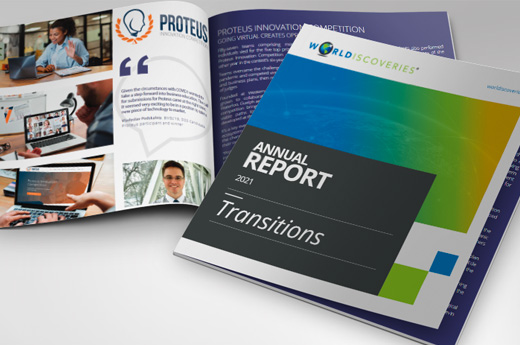As WORLDiscoveries® turns 10, we look back at our top 10 successes over the years, with highlights from fiscal year 2018 and earlier.
 For over 15 years, Desired Sensation Level (DSL) software developed by Susan Scollie, Director of Western’s National Centre for Audiology, has helped clinicians around the world provide millions of infants and children with the gift of hearing thanks to individually customized hearing aids created with the software.
For over 15 years, Desired Sensation Level (DSL) software developed by Susan Scollie, Director of Western’s National Centre for Audiology, has helped clinicians around the world provide millions of infants and children with the gift of hearing thanks to individually customized hearing aids created with the software.
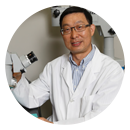 Qingping Feng, has discovered that a cellular protein, annexin A5, holds promising properties for the treatment of sepsis, which kills millions every year. Yabao Pharmaceutical Group, a Chinese firm, has signed a license agreement to develop a drug treatment for the life-threatening condition using Feng’s research.
Qingping Feng, has discovered that a cellular protein, annexin A5, holds promising properties for the treatment of sepsis, which kills millions every year. Yabao Pharmaceutical Group, a Chinese firm, has signed a license agreement to develop a drug treatment for the life-threatening condition using Feng’s research.
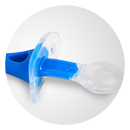 The brainchild of Ruth Martin, Associate Dean in the Faculty of Health Sciences, the Abilex device, produced and sold by Trudell Medical International, helps those who have lost their ability to swallow and speak, to exercise the muscles and rebuild the muscles in the jaw, mouth, and tongue, rehabilitating their lost abilities.
The brainchild of Ruth Martin, Associate Dean in the Faculty of Health Sciences, the Abilex device, produced and sold by Trudell Medical International, helps those who have lost their ability to swallow and speak, to exercise the muscles and rebuild the muscles in the jaw, mouth, and tongue, rehabilitating their lost abilities.
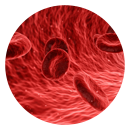 LifeLike Biotissue produces materials and models that mimic the mechanical properties, feel and anatomy of the human body from fat to arterial blood vessels and everything in between. Their technology has also been used in surgical skills labs in more than 50 training hospitals in the United States, Canada and Europe.
LifeLike Biotissue produces materials and models that mimic the mechanical properties, feel and anatomy of the human body from fat to arterial blood vessels and everything in between. Their technology has also been used in surgical skills labs in more than 50 training hospitals in the United States, Canada and Europe.
 Established in 1998, EK3, now Cineplex Digital Networks, produces and manages narrowcasting and digital signage. With over 10 years of research and development experience, EK3 has deployed some of the world’s biggest and most complex digital networks using proprietary state of the art technology and patented software.
Established in 1998, EK3, now Cineplex Digital Networks, produces and manages narrowcasting and digital signage. With over 10 years of research and development experience, EK3 has deployed some of the world’s biggest and most complex digital networks using proprietary state of the art technology and patented software.
 Ting Lee’s CT perfusion software has transformed the way physicians assess and treat stroke patients. Through a partnership with GE Healthcare, this software has been installed in over 8,000 medical imaging centres providing a global impact on patient care while creating significant economic benefits for Canada.
Ting Lee’s CT perfusion software has transformed the way physicians assess and treat stroke patients. Through a partnership with GE Healthcare, this software has been installed in over 8,000 medical imaging centres providing a global impact on patient care while creating significant economic benefits for Canada.
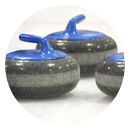 Designed by Tom Jenkyn and Jeff Wood of Western’s Faculty of Engineering, and curling coach Scott Arnold, the new Canadian Olympic curling broom requires less force to clean the ice during play by allowing heat to be reflected back onto the ice. The reduced friction between the rock and ice allows for an easier sweep to victory.
Designed by Tom Jenkyn and Jeff Wood of Western’s Faculty of Engineering, and curling coach Scott Arnold, the new Canadian Olympic curling broom requires less force to clean the ice during play by allowing heat to be reflected back onto the ice. The reduced friction between the rock and ice allows for an easier sweep to victory.
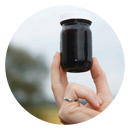 Agri-Therm spearheaded the development of a mobile pyrolysis platform which converts low-value agricultural residue into usable biochar and bio oil that can be used as fertilizer or a fossil fuel substitute. Agri-Therm entered into an exclusive license agreement with a Beijing- based multinational biotech company in 2017.
Agri-Therm spearheaded the development of a mobile pyrolysis platform which converts low-value agricultural residue into usable biochar and bio oil that can be used as fertilizer or a fossil fuel substitute. Agri-Therm entered into an exclusive license agreement with a Beijing- based multinational biotech company in 2017.
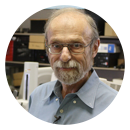 Aaron Fenster has been a prodigious inventor during his career, securing 100+ patents covering a range of imaging related technologies. The prostate biopsy and therapy related technologies have been licensed to Eigen Inc. for nearly 10 years, finding commercial application in their leading MRI/TRUS-Fusion biopsy platform, ArtemisTM.
Aaron Fenster has been a prodigious inventor during his career, securing 100+ patents covering a range of imaging related technologies. The prostate biopsy and therapy related technologies have been licensed to Eigen Inc. for nearly 10 years, finding commercial application in their leading MRI/TRUS-Fusion biopsy platform, ArtemisTM.
 DYNA6.1 software developed by Western Civil and Environmental Engineering Professor Hesham El Naggar, is used worldwide for the design of machine foundations. DYNA6.1 is double precision for more accuracy and more stability of numerical processing and can analyze the effects of single or multiple machines.
DYNA6.1 software developed by Western Civil and Environmental Engineering Professor Hesham El Naggar, is used worldwide for the design of machine foundations. DYNA6.1 is double precision for more accuracy and more stability of numerical processing and can analyze the effects of single or multiple machines.
Read more

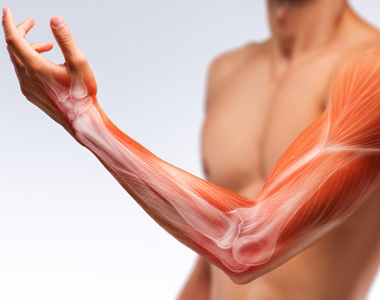
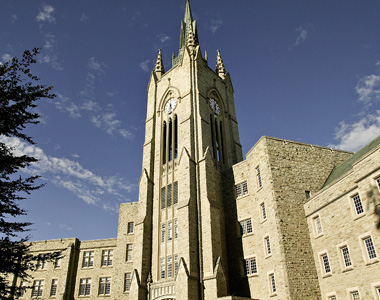
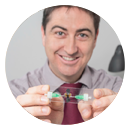


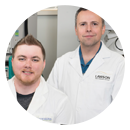

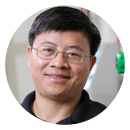
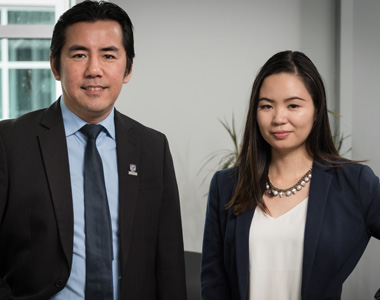
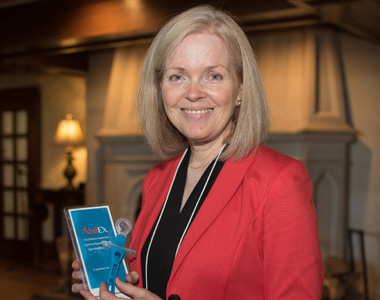
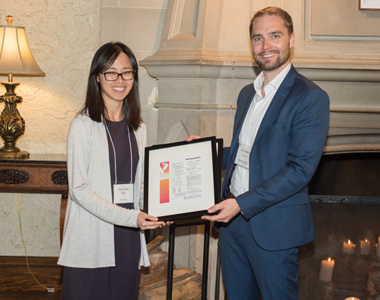
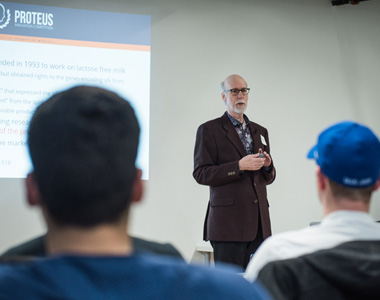
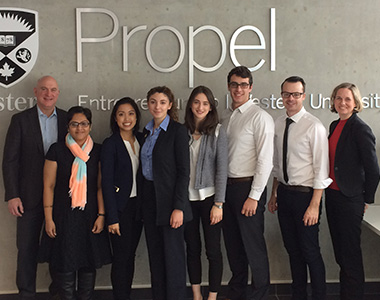
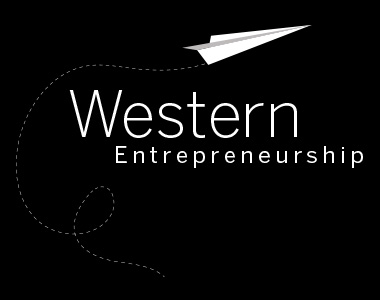
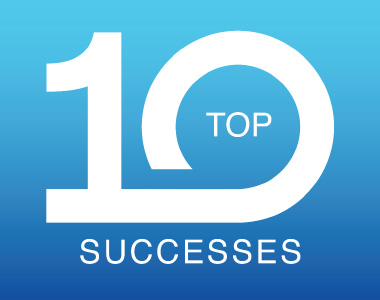
 For over 15 years, Desired Sensation Level (DSL) software developed by Susan Scollie, Director of Western’s National Centre for Audiology, has helped clinicians around the world provide millions of infants and children with the gift of hearing thanks to individually customized hearing aids created with the software.
For over 15 years, Desired Sensation Level (DSL) software developed by Susan Scollie, Director of Western’s National Centre for Audiology, has helped clinicians around the world provide millions of infants and children with the gift of hearing thanks to individually customized hearing aids created with the software. Qingping Feng, has discovered that a cellular protein, annexin A5, holds promising properties for the treatment of sepsis, which kills millions every year. Yabao Pharmaceutical Group, a Chinese firm, has signed a license agreement to develop a drug treatment for the life-threatening condition using Feng’s research.
Qingping Feng, has discovered that a cellular protein, annexin A5, holds promising properties for the treatment of sepsis, which kills millions every year. Yabao Pharmaceutical Group, a Chinese firm, has signed a license agreement to develop a drug treatment for the life-threatening condition using Feng’s research. The brainchild of Ruth Martin, Associate Dean in the Faculty of Health Sciences, the Abilex device, produced and sold by Trudell Medical International, helps those who have lost their ability to swallow and speak, to exercise the muscles and rebuild the muscles in the jaw, mouth, and tongue, rehabilitating their lost abilities.
The brainchild of Ruth Martin, Associate Dean in the Faculty of Health Sciences, the Abilex device, produced and sold by Trudell Medical International, helps those who have lost their ability to swallow and speak, to exercise the muscles and rebuild the muscles in the jaw, mouth, and tongue, rehabilitating their lost abilities. LifeLike Biotissue produces materials and models that mimic the mechanical properties, feel and anatomy of the human body from fat to arterial blood vessels and everything in between. Their technology has also been used in surgical skills labs in more than 50 training hospitals in the United States, Canada and Europe.
LifeLike Biotissue produces materials and models that mimic the mechanical properties, feel and anatomy of the human body from fat to arterial blood vessels and everything in between. Their technology has also been used in surgical skills labs in more than 50 training hospitals in the United States, Canada and Europe. Established in 1998, EK3, now Cineplex Digital Networks, produces and manages narrowcasting and digital signage. With over 10 years of research and development experience, EK3 has deployed some of the world’s biggest and most complex digital networks using proprietary state of the art technology and patented software.
Established in 1998, EK3, now Cineplex Digital Networks, produces and manages narrowcasting and digital signage. With over 10 years of research and development experience, EK3 has deployed some of the world’s biggest and most complex digital networks using proprietary state of the art technology and patented software. Ting Lee’s CT perfusion software has transformed the way physicians assess and treat stroke patients. Through a partnership with GE Healthcare, this software has been installed in over 8,000 medical imaging centres providing a global impact on patient care while creating significant economic benefits for Canada.
Ting Lee’s CT perfusion software has transformed the way physicians assess and treat stroke patients. Through a partnership with GE Healthcare, this software has been installed in over 8,000 medical imaging centres providing a global impact on patient care while creating significant economic benefits for Canada. Designed by Tom Jenkyn and Jeff Wood of Western’s Faculty of Engineering, and curling coach Scott Arnold, the new Canadian Olympic curling broom requires less force to clean the ice during play by allowing heat to be reflected back onto the ice. The reduced friction between the rock and ice allows for an easier sweep to victory.
Designed by Tom Jenkyn and Jeff Wood of Western’s Faculty of Engineering, and curling coach Scott Arnold, the new Canadian Olympic curling broom requires less force to clean the ice during play by allowing heat to be reflected back onto the ice. The reduced friction between the rock and ice allows for an easier sweep to victory. Agri-Therm spearheaded the development of a mobile pyrolysis platform which converts low-value agricultural residue into usable biochar and bio oil that can be used as fertilizer or a fossil fuel substitute. Agri-Therm entered into an exclusive license agreement with a Beijing- based multinational biotech company in 2017.
Agri-Therm spearheaded the development of a mobile pyrolysis platform which converts low-value agricultural residue into usable biochar and bio oil that can be used as fertilizer or a fossil fuel substitute. Agri-Therm entered into an exclusive license agreement with a Beijing- based multinational biotech company in 2017. Aaron Fenster has been a prodigious inventor during his career, securing 100+ patents covering a range of imaging related technologies. The prostate biopsy and therapy related technologies have been licensed to Eigen Inc. for nearly 10 years, finding commercial application in their leading MRI/TRUS-Fusion biopsy platform, ArtemisTM.
Aaron Fenster has been a prodigious inventor during his career, securing 100+ patents covering a range of imaging related technologies. The prostate biopsy and therapy related technologies have been licensed to Eigen Inc. for nearly 10 years, finding commercial application in their leading MRI/TRUS-Fusion biopsy platform, ArtemisTM. DYNA6.1 software developed by Western Civil and Environmental Engineering Professor Hesham El Naggar, is used worldwide for the design of machine foundations. DYNA6.1 is double precision for more accuracy and more stability of numerical processing and can analyze the effects of single or multiple machines.
DYNA6.1 software developed by Western Civil and Environmental Engineering Professor Hesham El Naggar, is used worldwide for the design of machine foundations. DYNA6.1 is double precision for more accuracy and more stability of numerical processing and can analyze the effects of single or multiple machines.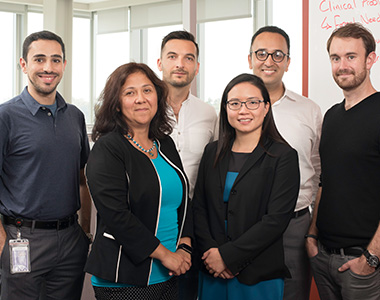
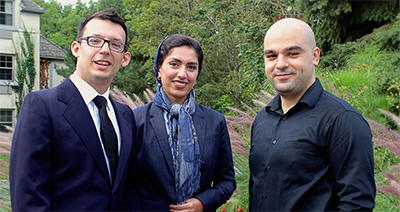 From L to R: Upon completing the program, Martin Smith went on to join Robart’s Clinical Trials as a Business Commercialization Analyst, joining the local technology commercialization ecosystem, Samaneh Baghbani returned to focusing on her clinical work and further advance her start-up which is developing a rehabilitation device, AbdulWahab Kabani went on to cofound his start-up MATR, which uses AI to tackle problems in rehabilitation.
From L to R: Upon completing the program, Martin Smith went on to join Robart’s Clinical Trials as a Business Commercialization Analyst, joining the local technology commercialization ecosystem, Samaneh Baghbani returned to focusing on her clinical work and further advance her start-up which is developing a rehabilitation device, AbdulWahab Kabani went on to cofound his start-up MATR, which uses AI to tackle problems in rehabilitation.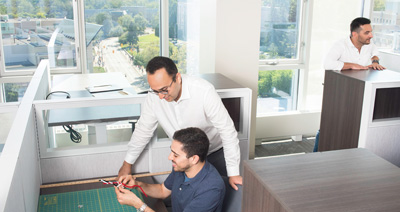 The new makerspace for the fellows is based in the Western Interdisciplinary Research Building. Located on the seventh floor, the space provides an inspiring work environment, putting the fellows in close proximity to some of the finest minds in neuroscience while providing easy access to main campus. The new stateof- the-art building is also home to the Brain and Mind Institute and the Rotman Institute of Philosophy, and is adjacent to Robarts Research Institute and University Hospital.
The new makerspace for the fellows is based in the Western Interdisciplinary Research Building. Located on the seventh floor, the space provides an inspiring work environment, putting the fellows in close proximity to some of the finest minds in neuroscience while providing easy access to main campus. The new stateof- the-art building is also home to the Brain and Mind Institute and the Rotman Institute of Philosophy, and is adjacent to Robarts Research Institute and University Hospital.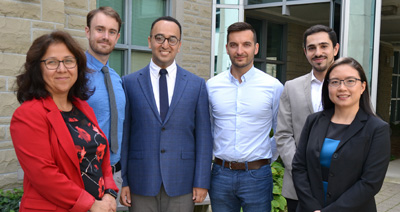 The cohort for the 2018/19 program year grew from three members to five. From L to R, Souzan Armstrong, the director of the program welcomes Jacob Reeves who holds a PhD in mechanical engineering, Mahmoud Ramin who holds a PhD in neuroscience, Bartosz Slak, who holds master’s degrees in physics and engineering, Ibrahim Marwa who holds a medical doctorate and a master’s in public health, and Maryanne Siu who holds a medical doctorate.
The cohort for the 2018/19 program year grew from three members to five. From L to R, Souzan Armstrong, the director of the program welcomes Jacob Reeves who holds a PhD in mechanical engineering, Mahmoud Ramin who holds a PhD in neuroscience, Bartosz Slak, who holds master’s degrees in physics and engineering, Ibrahim Marwa who holds a medical doctorate and a master’s in public health, and Maryanne Siu who holds a medical doctorate.